2025 Hume Award Winner Is Dedicated to Children’s Care
By Bradley Warady, MD, Joel M. Topf, MD, FACP - Last Updated: April 25, 2025During the National Kidney Foundation (NKF) Spring Clinical Meetings 2025 (SCM25), Bradley Warady, MD, received the David M. Hume Award in recognition of his scholarship and humanitarianism. Dr. Warady is the McLaughlin Family Endowed Chair in Nephrology and a professor of pediatrics at the University of Missouri–Kansas City School of Medicine and serves as director of Nephrology and Dialysis and Transplantation at Children’s Mercy Kansas City.
In addition, he is a principal investigator of the Chronic Kidney Disease in Children (CKiD) study and among the lead faculty of the Standardizing Care to Improve Outcomes in Pediatric ESRD (SCOPE) collaborative, which aims to minimize infection-related complications in pediatric patients undergoing dialysis. In short, his career has been dedicated to children with kidney disease.
Nephrology Times spoke with Dr. Warady at SCM25 ahead of his acceptance of the award.
What are your thoughts on winning the David M. Hume Memorial Award?
Well, I have a lot of thoughts about winning it. Number 1, I was very surprised to receive the notice on email that I had won the award, and I wondered if it was actually a mistake and that it was supposed to be going to somebody else. Most importantly, it suggests that the people who selected me value what I’ve done for kids and families with kidney disease over the past 4 decades. Getting an award that your peers vote on, if you will, and select you is a great honor. I like most the fact that they recognize how important the care of kids with kidney disease is and the role that I have played in trying to improve the lives of those children who are afflicted with kidney disease.
The only other thing that I would say is that, in getting an award like the Hume Award, it’s not just what I’ve done; it’s what I’ve done with so many other people. First and foremost, I always have to thank my family because they supported me through this. I have to thank my team at Children’s Mercy who have made it possible for me to be engaged in so many different initiatives on behalf of children with kidney disease. I want to thank the collaborators that I’ve worked with in research who are great people, extraordinarily smart people, and now very good friends. Then I want to thank the NKF for making themselves an organization that allowed individuals like me to be engaged in initiatives with them. Thankfully, the NKF and myself are on the same wavelength: that our goals are to improve the lives of children with kidney disease. It’s been a great 4 decades—and I’m not done.
The award not only honors scholarship but humanitarianism. How do you prioritize the human element in your practice when there are so many other demands made of clinician-researchers?
I wanted to be a pediatrician first. That was my goal. In fact, when I was 9 years old, I was sick, and my pediatrician came to my home every day. From that time on, I wanted to be a pediatrician. That humanistic aspect of my DNA is really what drives me every single day. Over the course of my decades as a pediatric nephrologist, I’ve stayed very close with the families, with the kids, first and foremost. The scholarship is obviously very important, but to me, that complements that humanistic element that I pride myself on. It’s the pediatric person in me that lends itself to having those long-term relationships with families and kids.
You’ve served on the writing committees for a few guidelines. Why is that work important to you? Has it influenced your clinical or research work?
Much of my scholarship, if you will, has been in discovery—trying to determine how can we improve the care of kids of all ages who have kidney disease. Through those investigations and the generation of new information, that’s lent itself to developing guidelines, not only to benefit the kids but to benefit the providers who need that insight, need that information that some of us have helped generate. The guidelines are just another way that I’ve been able to help kids and to help families who are dealing with kidney disease.
Could you provide a few highlights of your current research projects?
I’m doing a lot of different things in research. I just came from a meeting, just hours ago, where we are aiming to figure out ways to decrease the risk of infection in children on dialysis and improve blood pressure management in these same children. That’s one of my research areas. Another research area is sorting out ways to delay the progression of chronic kidney disease in children so that they never need dialysis or transplantation. Then, most recently, I’m in the midst of working with the National Kidney Foundation and developing a workshop for mental health for children and adults with chronic kidney disease.
Being a nephrologist, you really get the opportunity to deal with so many different aspects of life for these individuals. From what I just told you, chronic kidney disease, dialysis improvement, and mental health—it’s a great example of how we have to look at the whole person, the whole child, and try to improve all aspects of their life.
April is Donate Life Month. As director of dialysis and transplantation at Children’s Mercy, could you share any thoughts about strategies to promote kidney donation?
Strategies to improve kidney donation—start off with this: educating the community, educating them about the need. In pediatric nephrology, we’re always confronted with the fact that the lay public doesn’t realize that children have kidney disease, that children have kidney failure, that children have to go on dialysis and ultimately need a kidney transplant. My goal was always to educate the community about their role in helping children and adults who are dealing with kidney failure. One way they can do that has been [by] making themselves available—when, unfortunately, they pass away—is organ donation and educating their families and friends about the importance of organ donation as well. When a child has to go on dialysis, it’s only a bridge to transplant. All of these kids need a transplant so they can lead a full life. This month especially, we just need to continue to educate people about the value of transplantation, about the impact of transplantation on so many people.
We need more transplants, and we need more organs, of course. But only through education of the community and making them aware of some of the great stories surrounding kids and adults who receive a kidney—that will help us in furthering the message about the importance of organ donation.

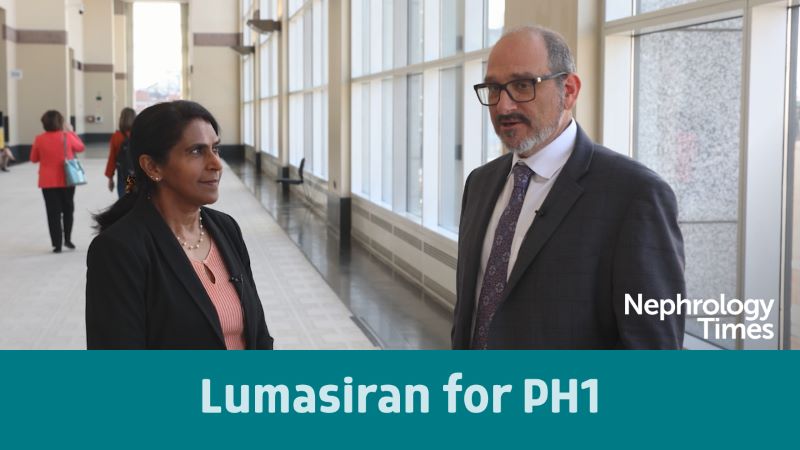
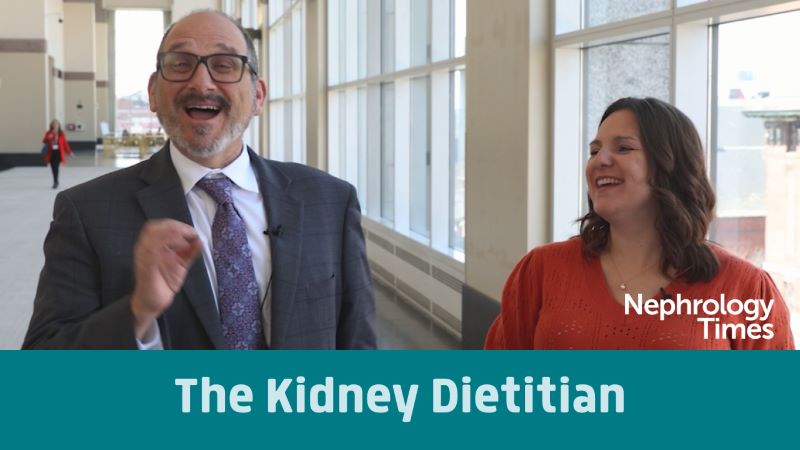
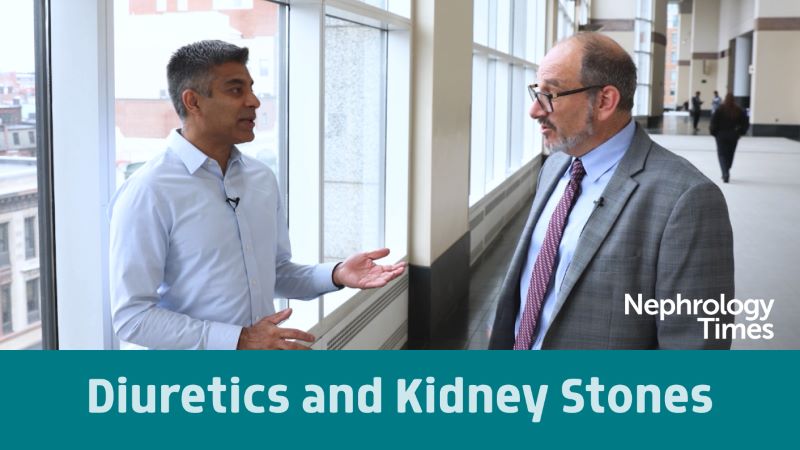
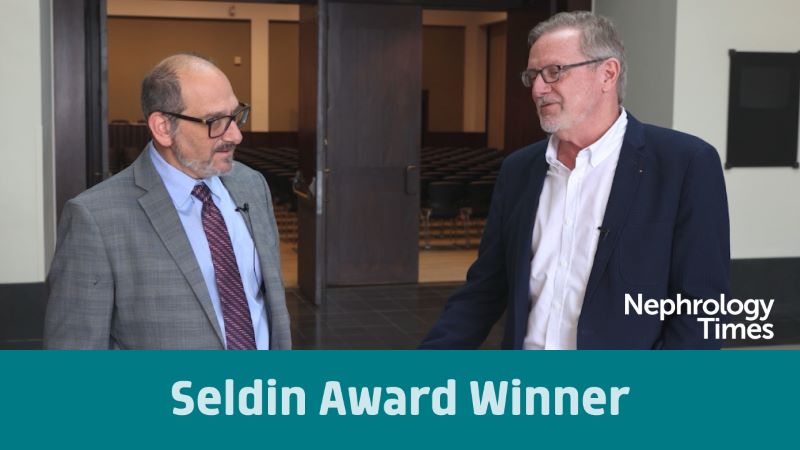
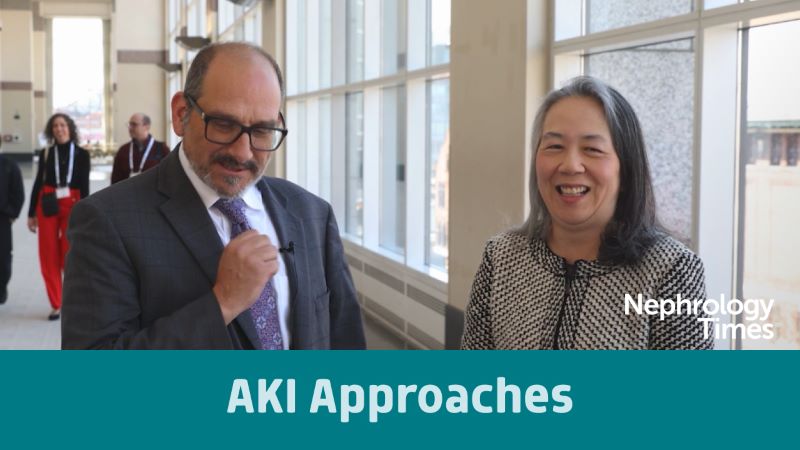

 © 2025 Mashup Media, LLC, a Formedics Property. All Rights Reserved.
© 2025 Mashup Media, LLC, a Formedics Property. All Rights Reserved.